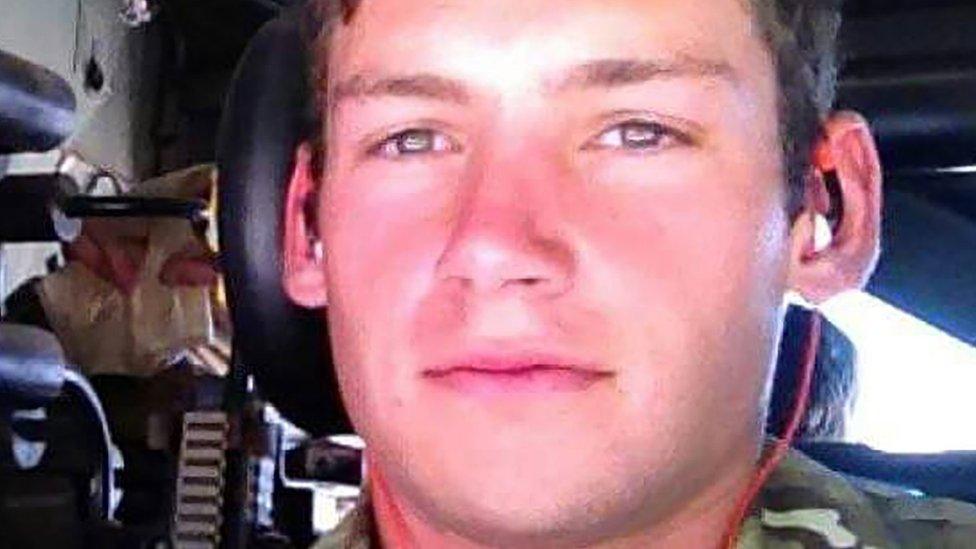Army training deaths 'will keep happening'
- Published
Craig Roberts, Edward Maher and James Dunsby collapsed in the heat during an SAS selection test
The Ministry of Defence breached health and safety laws 40 times in the past 20 years - not in war zones but in training, a BBC investigation has found.
Bereaved families say lives are being put at risk by repeated mistakes.
There are now renewed calls for the military to lose its immunity from prosecution.
The MoD said safety was a "top priority" and training policies are "regularly reviewed".
On one of the hottest days of 2013, three soldiers died during an exercise on the Brecon Beacons.
The parents of one of those men, Craig Roberts, have now broken their six-year silence to speak to BBC Wales Investigates.
They want the MoD to face criminal charges when people die during training.
"He loved it, he loved the training, he loved the men he was with… he found a way of life that he enjoyed," said L/Cpl Roberts's mother, Margaret.
"We were worried about what he could be asked to do if he was deployed - the thought of training didn't occur to us at all."
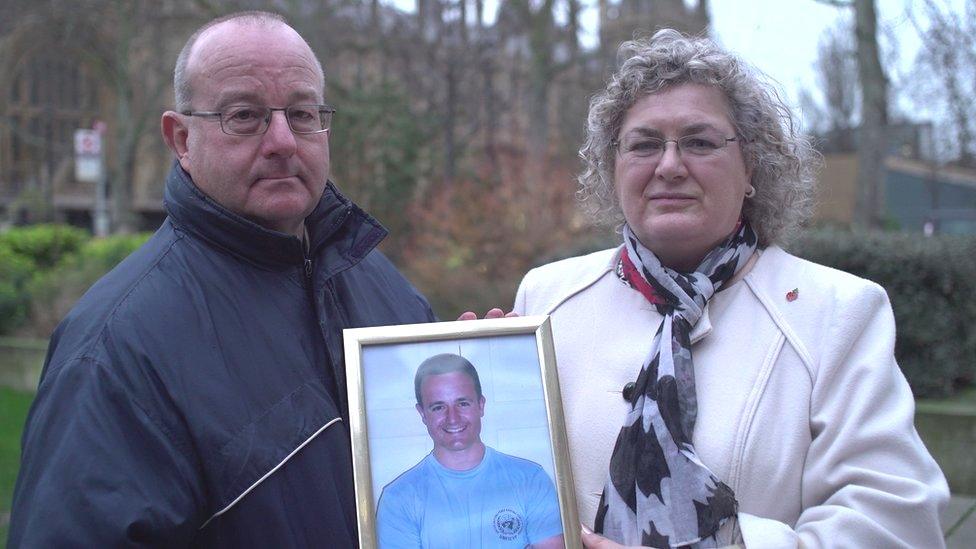
Kelvin and Margaret Roberts - whose son Craig died in the Brecon Beacons in 2013 - want the MoD to lose its Crown immunity
On the day he died, L/Cpl Roberts, from Penrhyn Bay near Llandudno, was on a 16-mile (25.7km) march against the clock during an SAS selection test.
Like the other would-be special forces men on the Brecon Beacons, he was marching with 25kg (3st 13lb) on his back in high temperatures with no breeze.
Two men had been withdrawn from the exercise, severely affected by the heat - a sign others were at risk.
As the march continued L/Cpl Roberts, 24, collapsed and died. Two other reservists - Cpl James Dunsby and L/Cpl Eddie Maher - also died because of the heat that day.
A senior coroner ruled in 2015 that training and planning that day was poor - that the men who died had been neglected by the Army.
"Craig didn't have an accident, he didn't fall off a cliff - he was failed by the MoD that day and that shouldn't have happened," said Margaret Roberts.
"We know special forces are now a lot safer, but it's all regiments that need to be looked after, not just special forces.
"It shouldn't have happened again, but it did. We should have been the last ones."
Another heat victim
The Army said it would do "everything possible" to "prevent a recurrence" of the deaths in 2013.
But that didn't save Joshua Hoole.
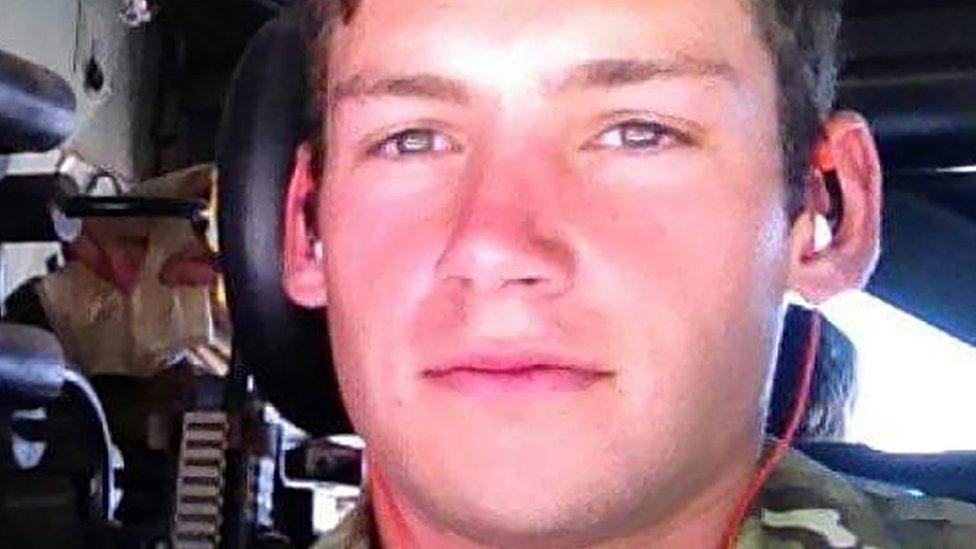
A medical examination had not flagged any issues with Cpl Joshua Hoole
It was another hot day in July 2016 when he was on an annual fitness test near Brecon.
Cpl Hoole was described as one of the fittest soldiers in his unit, and had faced the heat of Afghanistan.
But the high temperature became a fatal factor again. Of the 41 men taking part that day in Wales, 18 dropped out, collapsed or were withdrawn.
Like Craig Roberts, Joshua nearly finished his challenge.
Like Craig, he collapsed and, despite medical attention, could not be saved.
"They promised us lessons would be learned," Margaret Roberts said.
"But when you read [Josh's] record of inquest, it's in a way like reading Craig's record of inquest, and you say 'haven't they learned?'"
The coroner at Cpl Hoole's inquest voiced "grave concerns" about the Army's ability to "learn from previous mistakes".
Over the past two decades, 148 service personnel have died - not on the battlefield, but on training exercises.
A freedom of information request by BBC Wales Investigates has discovered that the MoD breached health and safety laws 40 times during that period.
But it has Crown immunity - meaning it cannot face criminal prosecutions.
Diver deaths
BBC Wales Investigates has also obtained an internal MoD review which was commissioned in 2002 after a spate of diving deaths.
The report recommended "substantial changes" to equipment and training to meet "21st Century standards".
Just two years later, in 2004, Sgt Bill McLellan died during an exercise in Germany, wearing the same kit the Army had been warned to replace.
In 2016, the MoD was again warned about safety issues with new diving equipment.
Those concerns were overruled.
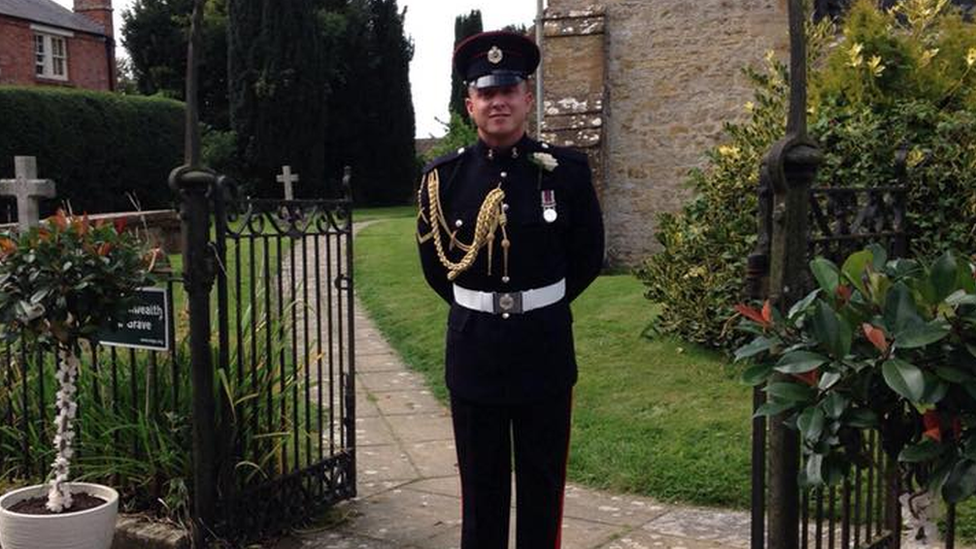
L/Cpl George Partridge was described as an "exemplary soldier" by his commanding officer
Two years later, in 2018, L/Cpl George Partridge died at the National Diving and Activity Centre near Chepstow.
An MoD inquiry, external found lessons had not been learned and there was still no formal training for diving officers.
Hilary Meredith represented Sgt McLellan's widow and has acted for many others left bereaved by military training accidents.
While acknowledging that preparations for the military have to be rigorous, she says a failure to change is causing accidents to happen "again and again".
"[The MoD] can be criticised but there are no sanctions or teeth to make them sit up and change and we have to look after those people who serve us," Ms Meredith said.
"I think, quite shockingly, the only way to make change is to really be extreme - remove immunity so the MoD takes responsibility and is sanctioned or fined if there is a reckless disregard to life."
And there is another cost aside from the lives cut short.
BBC Wales Investigates has found through a freedom of information request that preventable injuries have cost the MoD more than £56m between 2012 and 2019.
Add on legal fees and it's estimated climatic injuries (because of excess heat or cold) are costing the military at least £18m a year.
Safety a 'top priority'
In a statement, an MoD spokesperson said it regularly monitored and audited training, and "all deaths in training are investigated" to "ensure that incidents are minimised".
It cited that heat illness policy had been updated six times since 2015, and a full safety review was undertaken into diving activities in 2018, which is ongoing.
The statement said the Health and Safety Executive (HSE) had the power to investigate the MoD over breaches of health and safety law and can issue Crown Censures, which it took seriously.
"In virtually every case in which the HSE has identified shortcomings, the MoD has taken action to prevent a recurrence… well before any decision on a Crown Censure," the statement said.
Craig Roberts' parents have now joined the likes of Hilary Meredith in calling for the law to be changed so the MoD can face prosecution by the HSE if things go badly wrong.
L/Cpl Roberts's father Kelvin says health and safety law should apply to the MoD in the same way as other high risk industries to prevent further fatalities.
"To have this safety net of immunity from prosecution, I'd imagine nearly every single company in civvy street would love that… and I think it's a lame excuse in today's day and age," he says.
"It should be removed… and until that happens, I'm sorry to say I think this is going to happen over and over again."
BBC Wales Investigates Our Son Died - When Will They Learn? is on Wednesday, 19 February at 20:00 GMT on BBC One Wales and then on the BBC iPlayer.
- Published19 February 2020
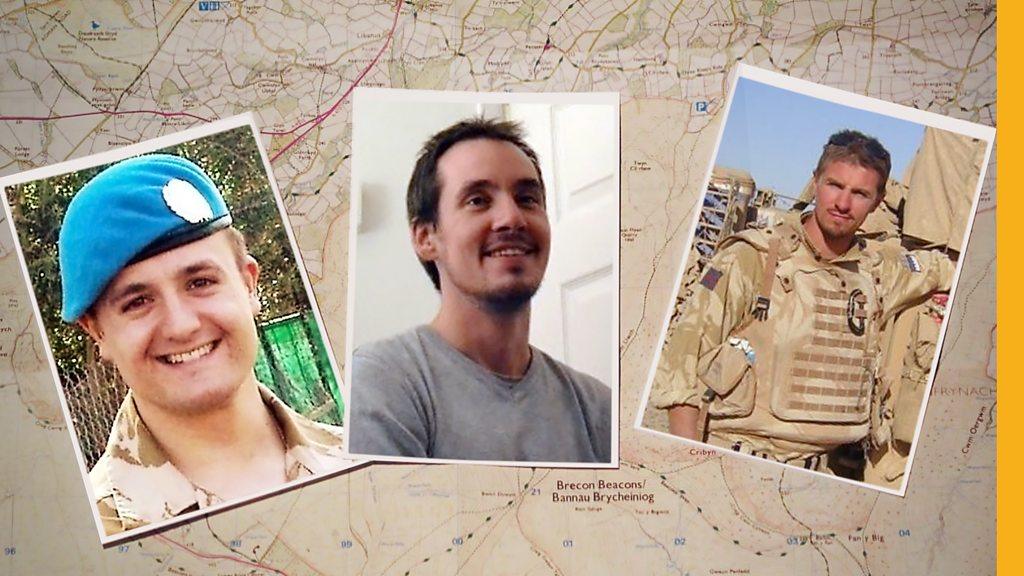
- Published2 January 2020
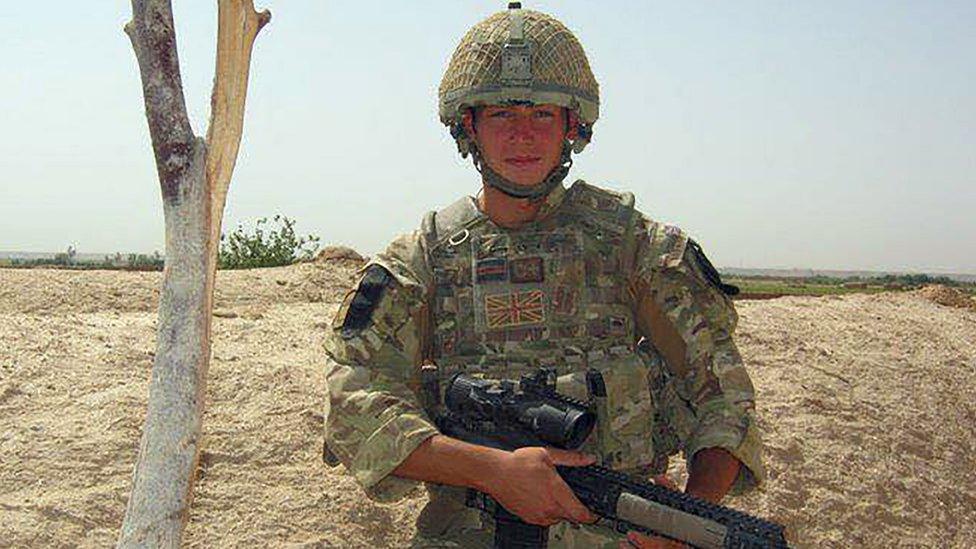
- Published1 October 2019
